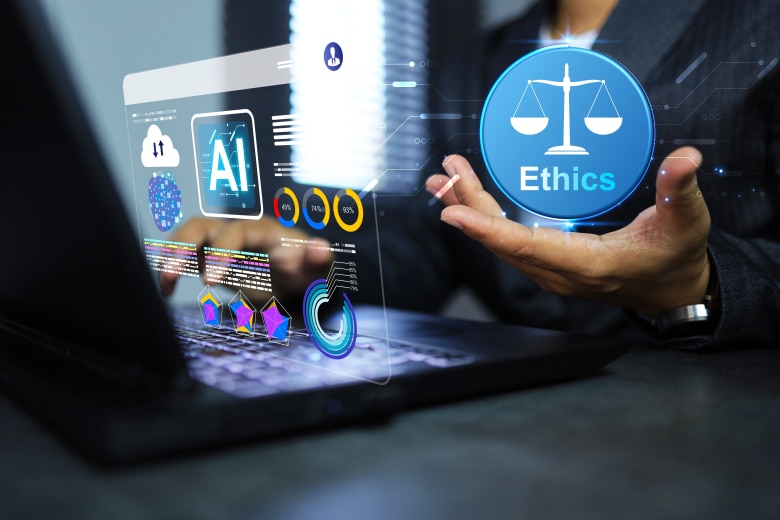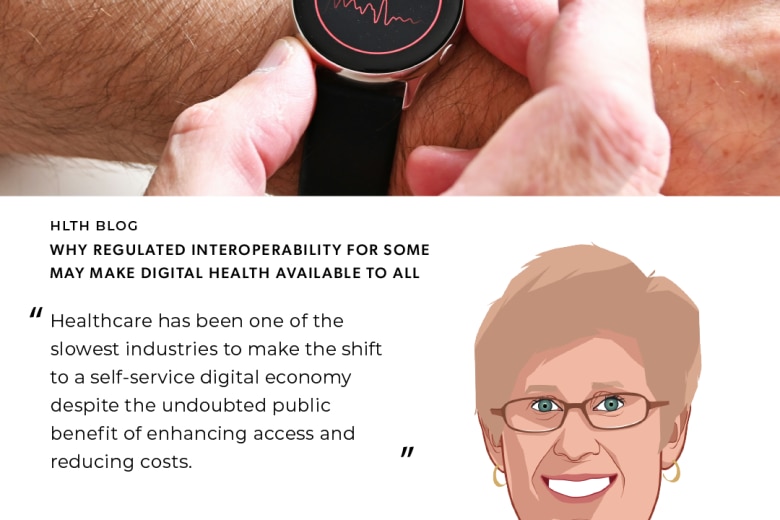We have reached a disruptive time in the healthcare industry, with change being driven by advancements in technology and the rise of virtual healthcare, alongside the evolving expectations of patients. As the world becomes increasingly digitized and connected, the need to be able to access, manage and analyze data has become more important than ever.
Recent shifts in technology are further driving consumerization of healthcare -- the promise of artificial intelligence (AI), the use of wearable devices and mobile health apps to monitor and track health metrics, and increased availability of telemedicine services for remote consultations and diagnosis. AI in particular holds promise of significantly advancing healthcare by improving the patient and clinician experience, providing decision support, automating and accelerating tasks like clinical documentation, and aiding in planning and predicting organizational as well as patient futures.
Addressing the Challenge: The Influx of Patient Data
A critical issue in healthcare revolves around the sheer volume of patient data generated on a daily basis. As we continue to make good progress on data interoperability, we create the new problem that we are presenting too much data, or rather too little insight, to our clinicians and other stakeholders. This inefficiency hinders healthcare professionals from making well-informed choices for their patients. Furthermore, the inability to detect data patterns compromises early disease identification, personalized treatment strategies, and overall patient outcomes.
A solution to this challenge lies in the transformative capabilities of Artificial Intelligence and Machine Learning (ML). By employing AI algorithms and ML models, healthcare systems can rapidly analyze vast amounts of patient data. This enables the identification of intricate patterns, trends, and correlations that are virtually impossible to discern manually. Additionally generative AI already is showing a great potential to shift through piles of documents, summarize effectively, and write rather eloquently. This will allow our healthcare professionals to take advantage of the larger amount of information available to them, without turning them into detectives, wasting their time shifting through irrelevant or duplicative information.
However, the true potential of AI is not solely dependent on abundant data; it also hinges on data quality—data that is reliable and accessible. Attaining high-quality, credible data is made possible through a robust underlying infrastructure and efficient data management platforms. Organizations should think of their data as a key strategic asset and invest in architectures, platforms, and governance strategies that can get the most out of this. Good data leads to good patient care, streamlined organizational processes, effective research, simplified experience with patients and users, and smooth collaboration with partners in the community.
AI's Future in User Interaction: The Power of Generative AI
Most of us are very optimistic about generative AI and the positive impact it will have in healthcare. The range of use cases is very broad, all the way from some administrative help to accurately diagnosing a patient. However the one that I have been particularly enthusiastic about is the opportunity this brings to revolutionize the User Experience of our Health IT applications. If you think about the most popular website on the planet, Google, or the fasting rising software technology in history by far, ChatGPT, they both have the same user interface – a single text box. A single text box invites the user to speak in their language and not be constrained by the point and clock, drop downs, data pickers, tabs, and menus that compromises most of our software today. Letting the users ask for what they want in natural language, and then having the software do the heavy lifting of acting on the user’s request is finally in reach with AI and Large Language Models. This user-friendly interaction simplifies navigation, data synthesis, and protocol requisition, empowering healthcare professionals to focus on patient care by minimizing clicks and keystrokes. We're shaping a future where technology seamlessly merges with the human touch.
AI's potential also emerges in swiftly identifying critical patient messages. Through our partnership with healthcare providers, InterSystems harnesses machine learning to automatically pinpoint urgent cases. This breakthrough innovation optimizes patient care and responsiveness, reshaping provider-patient interactions for timely, efficient care.
Effective healthcare relies on effective communication. AI is revolutionizing patient engagement by suggesting responses to patient queries, streamlining provider-patient interactions while maintaining compassion and timeliness. These AI-driven solutions amplify patient involvement, leading to enhanced satisfaction and richer experiences, effectively bridging the gap between patients and healthcare providers.
A few examples of how AI applications are transforming healthcare
- AI-powered diagnostics imaging systems are revolutionizing the field by analyzing medical images and assisting radiologists in identifying patterns and abnormalities, improving diagnostic accuracy and patient care.
- AI algorithms are being used to identify critical patient messages, enabling healthcare providers to prioritize and respond to urgent cases promptly. Machine learning models that can accurately detect and flag these critical messages ensure timely and critical interventions.
- AI-driven predictive analytics models are helping healthcare providers forecast patient readmissions. AI models that analyze patient data and identify risk factors allow for proactive interventions and improved patient outcomes.
- Virtual assistants and chatbots powered by AI are enhancing patient experiences and improving healthcare delivery. With AI-based virtual assistants, patients can get answers to their questions and obtain personalized healthcare recommendations.
- AI is being used to improve medication management and adherence. AI-powered systems that analyze patient data, identify medication patterns, and provide personalized reminders and recommendations ensure that patients take their medication as prescribed.
Exploring AI in action with real world use cases
Cognetivity Neurosciences is exploring the use of AI and machine learning to test the performance of large areas of the brain to help detect early signs of cognitive dysfunction.
eNose develops diagnostic tools such as its point-of-care Aenose for screening of diseases through exhaled breath. By applying advanced machine learning tools to large numbers of breath profiles, the company is hoping to eventually extend its technology to become the golden standard for disease screening -- helping detect diseases such as colon cancer, lung cancer, and tuberculosis
In conclusion, the healthcare industry is on the brink of a technological revolution, driven by the integration of Artificial Intelligence (AI) and Machine Learning (ML). With the ability to analyze vast amounts of patient data, AI algorithms and ML models are transforming patient care, improving diagnostics, and personalizing treatment strategies. The power of Generative AI is reshaping the user experience, simplifying navigation and empowering healthcare professionals to focus on what matters most – patient care. As we embrace the potential of AI, we are witnessing a future where technology seamlessly merges with the human touch, enhancing patient engagement and bridging the gap between patients and healthcare providers. The possibilities are endless, and we are just scratching the surface of what AI can achieve in healthcare. So, fasten your seatbelts and get ready for an exciting journey into the future of healthcare, where AI is set to revolutionize the way we deliver and experience healthcare services.




































